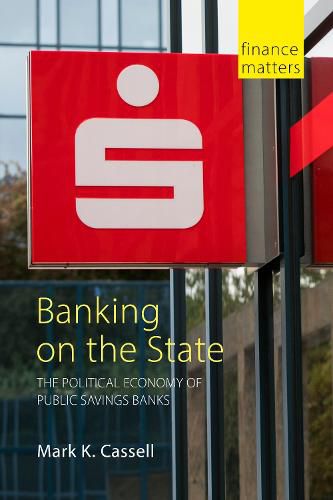Readings Newsletter
Become a Readings Member to make your shopping experience even easier.
Sign in or sign up for free!
You’re not far away from qualifying for FREE standard shipping within Australia
You’ve qualified for FREE standard shipping within Australia
The cart is loading…






Germany’s public savings banks - Sparkassen - are a remarkable and puzzling phenomena. No other advanced industrial country relies as heavily on such small, public financial institutions to fuel its economy and how is it that such small institutions can drive one of the biggest and most successful economies in the world?
In theory, their diminutive size should hinder their ability to function in an environment where they compete with the capital and muscle of major international banks. Yet at the height of the financial crisis, when other banks drastically reduced lending, new loans made by Sparkassen increased as they continued to provide liquidity and lend to start-up firms. How have they managed to survive the economic turmoil and global pressures of the last few decades? What has enabled them to stay at the heart of the German economy? In a period of neoliberal too-big-to-fail thinking, how have these relics of an ordoliberal past managed to flourish?
Mark Cassell answers these and many other questions in his exploration of the unique entity that is Germany’s public savings bank system and the lessons it offers to banking systems worldwide.
$9.00 standard shipping within Australia
FREE standard shipping within Australia for orders over $100.00
Express & International shipping calculated at checkout
Germany’s public savings banks - Sparkassen - are a remarkable and puzzling phenomena. No other advanced industrial country relies as heavily on such small, public financial institutions to fuel its economy and how is it that such small institutions can drive one of the biggest and most successful economies in the world?
In theory, their diminutive size should hinder their ability to function in an environment where they compete with the capital and muscle of major international banks. Yet at the height of the financial crisis, when other banks drastically reduced lending, new loans made by Sparkassen increased as they continued to provide liquidity and lend to start-up firms. How have they managed to survive the economic turmoil and global pressures of the last few decades? What has enabled them to stay at the heart of the German economy? In a period of neoliberal too-big-to-fail thinking, how have these relics of an ordoliberal past managed to flourish?
Mark Cassell answers these and many other questions in his exploration of the unique entity that is Germany’s public savings bank system and the lessons it offers to banking systems worldwide.